Announcing the Spring 2021 Development Fund Awards
April 26, 2021 • 11 minute read
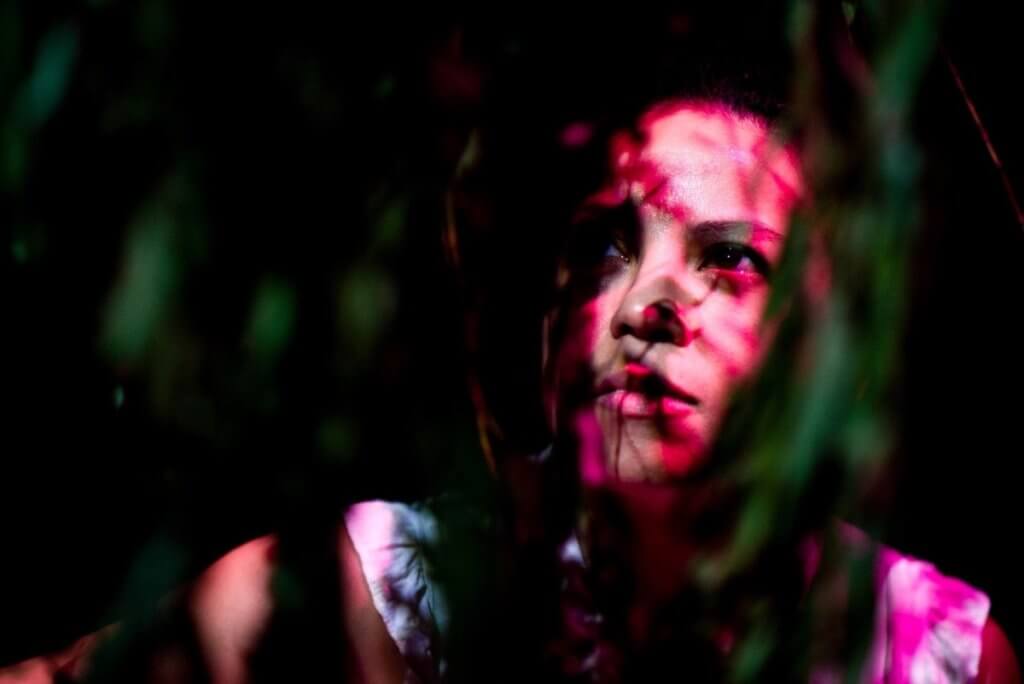
The National Performance Network (NPN) is pleased to announce it is awarding $135,000 and leveraging an additional $291,000 through the Spring 2021 Development Fund to further support sixteen Creation Fund projects. NPN will continue to guarantee additional Development Fund awards for all Creation Fund projects awarded in 2020 and 2021, reflecting its commitment to continuing to support the live arts during the current crisis through projects that advance racial justice and cultural equity.
The Development Fund, which is phase 2 of NPN’s Creation & Development Fund (CDF), helps offset managerial, artistic, or technical needs when developing a work. These needs can include supporting technical residencies, building or deepening community engagement, relationship building, storytelling, or studio time to adapt a work for travel.
NPN’s approach to artistic support is built on the notions of partnership and long-term relationship building. NPN actively strives to expand the capacities and connectivity of its constituents. The Development Fund is structured to maximize these goals. Artists can apply independently or as a team with a co-commissioner of their choosing, depending on the needs of the project.
The next Development Fund deadline will be September 10, 2021.
The Creation and Development Fund is made possible with support from the Doris Duke Foundation, the Mellon Foundation, and co-commissioners.
Spring 2021 Development Fund Recipients
Due to the pandemic, projects descriptions and timelines may shift.
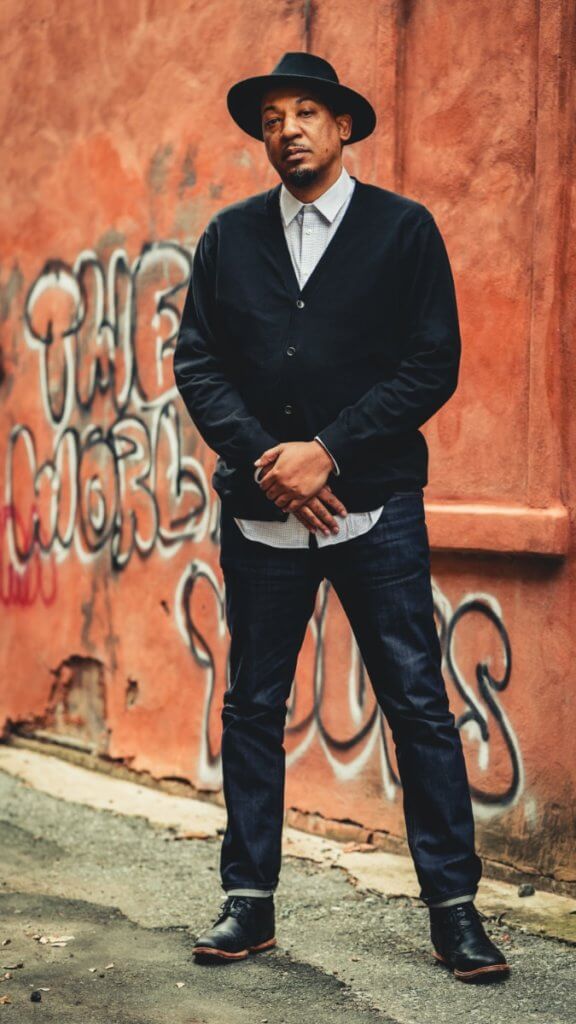
Black Poetry Theatre (Durham, NC) — Death of Cochise
Co-commissioner: Hayti Heritage Center (Durham, NC)
Told through a combination of verse, drama, and imagery, Death of Cochise takes audiences on a journey through identity, culture, struggle, responsibility, and accountability. This Hip Hop and Spoken Word production uses the art of emceeing and compelling storytelling to talk about Black life and the value of Black creative expression.
The funds will be used to help fund technical, design, and multimedia needs for the production, including set design, lighting design, and sound design. The artists will also hire a videographer and photographer to create projected images and video, as well as a director, and intend to collaborate with other artists in the community in these roles.
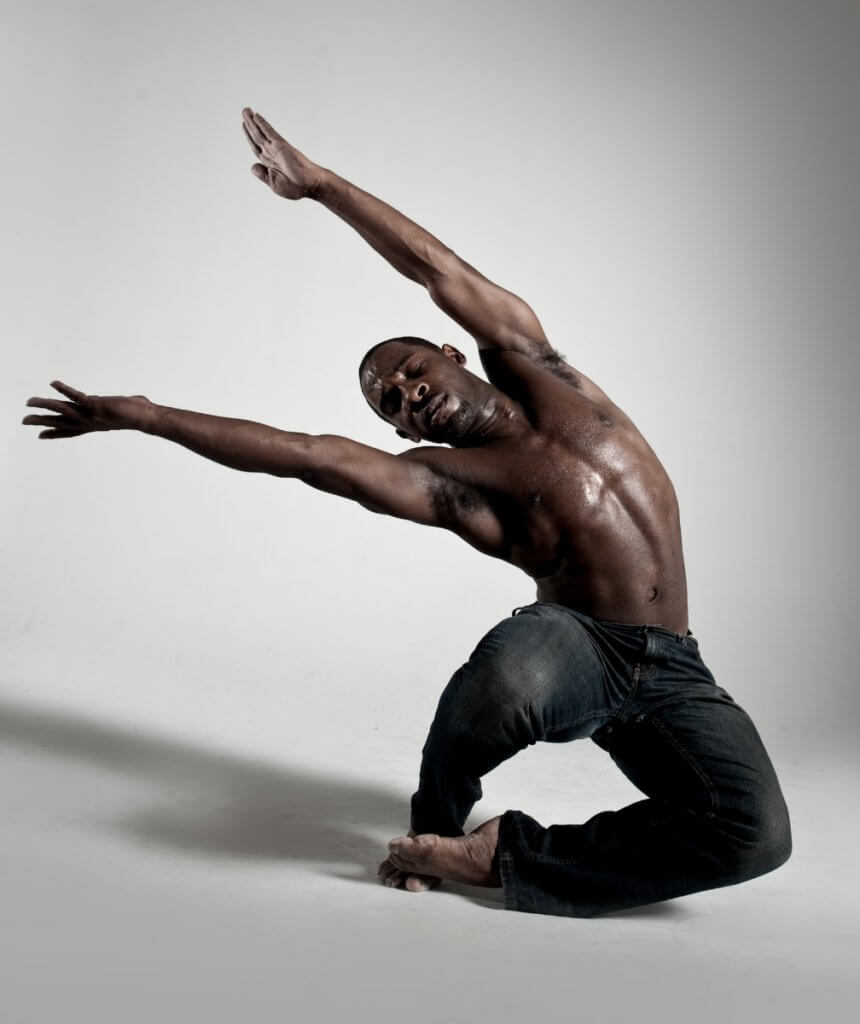
Dance Iquail! (Philadelphia, PA) — Public Enemy
Co-commissioner: Painted Bride Art Center (Philadelphia, PA)
Public Enemy (PE) is about the humanity of Black men and the diversity of that humanity. This Philadelphia-based community dance project by choreographer Iquail Shaheed explores Black male identity in the context of social issues that disproportionately affect Black men—particularly policing, incarceration, and racialized violence.
Funds will allow for a responsive “bubble” residency with choreographer Iquail Shaheed, five collaborators, and nine male dancers. Eight formerly incarcerated Black men will be provided with technical theater training and hired as creativities and crew. Through this five-month residency, collaborators will develop PE as a site-specific film work at Philly’s Eastern State Penitentiary.
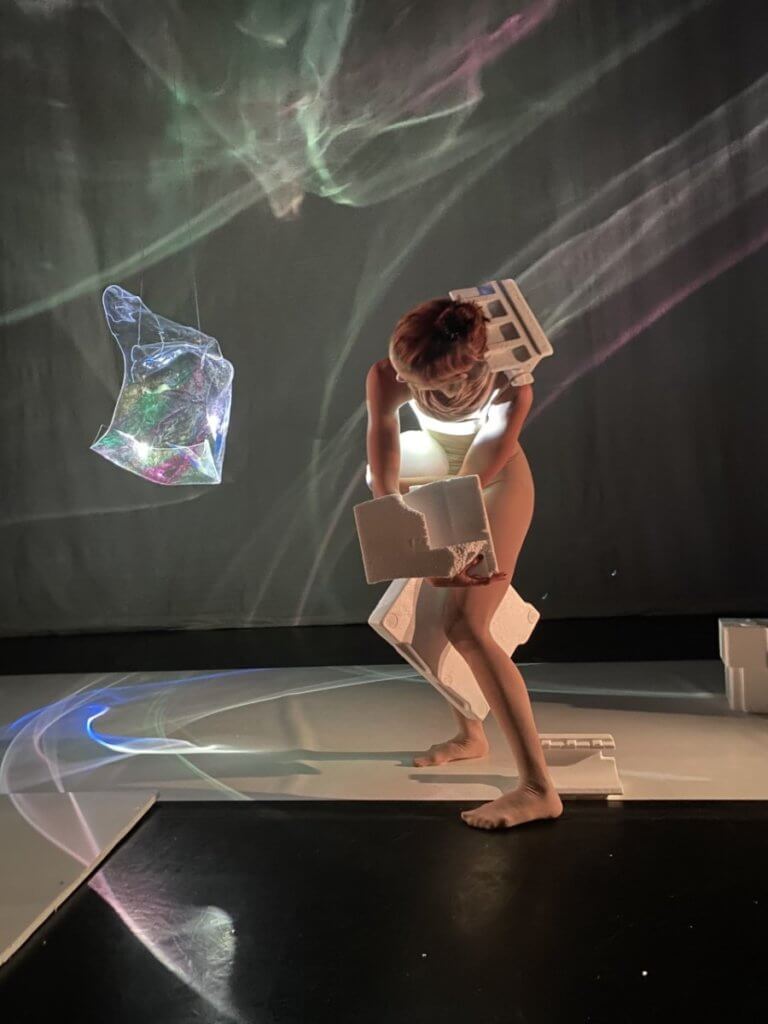
Liony Garcia (Hialeah, FL) — Corporeal Decorum
Co-commissioner: Miami Light Project (Miami Shores, FL)
Corporeal Decorum is a multidisciplinary performance piece by Liony Garcia. The new project investigates methods of mitigating the ill effects of cultural erasure via the destruction of Miami’s Art Deco architecture. Dynamically incorporating architecture, dance, sculpture, and video projections, the piece memorializes important elements of the city’s surviving Deco architecture by transmogrifying the disappearing exterior building details into the scenography and the body itself.
The Development Fund will help purchase a 3D mapping projector, and to fabricate an acrylic sculpture by the projection artist True Harrigan. The funds will also offset costs for a one-month technical residency at Miami Light Project’s art space, the Light Box, which will allow the scenic elements to be incorporated into the choreographic development and staging process of the work.
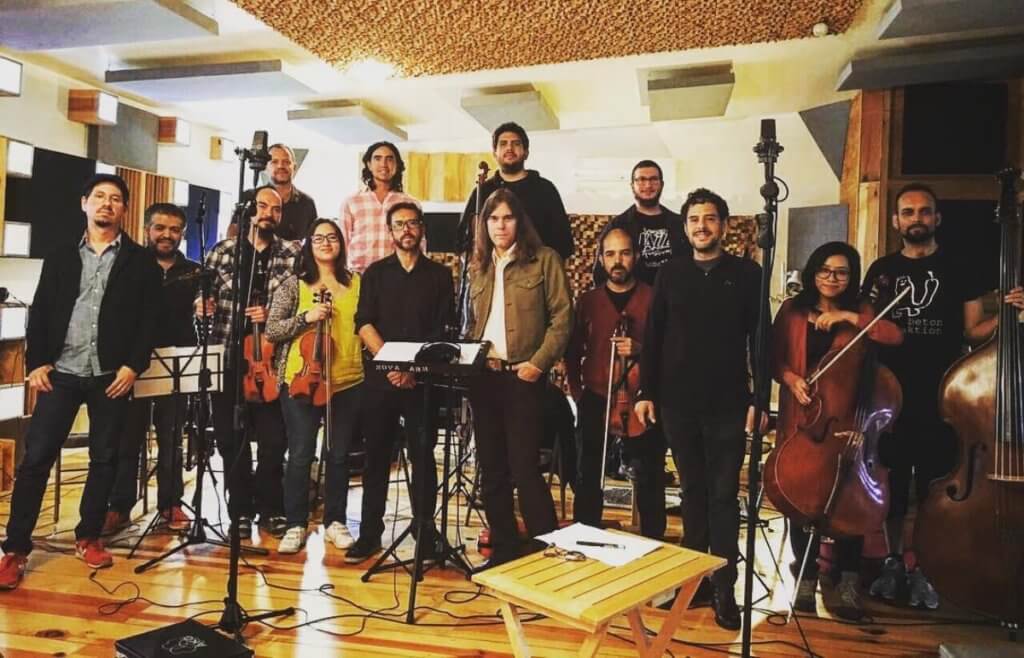
Golden Hornet: Felipe Pérez Santiago and Graham Reynolds (Mexico City, MX and Austin, TX) — MXTX
Co-commissioner: Fusebox Festival (Austin, TX)
MXTX will be a live performance, album, and open-source audio sample library crossing physical and social boundaries. Created through collaborative exchange, the curated, gender-balanced project involves over forty DJ-producers and composers from both sides of the Rio Grande. MXTX seeks to build musical, cultural, and social bridges through collective art making, community outreach, and live performances recognizing that borders are artificial, our two countries share deep historical ties, and we can resist and repel the forces of intolerance through our art.
Funds will support rehearsals in Waterloo Greenway, a new City of Austin park, to conceive an outdoor premiere that will allow for safe attendance of MXTX in late summer 2021. This newly renovated outdoor space is located in an urban and underserved area of Austin’s downtown and will allow the artists to present MXTX outdoors, with multiple access points, free and open to the public.
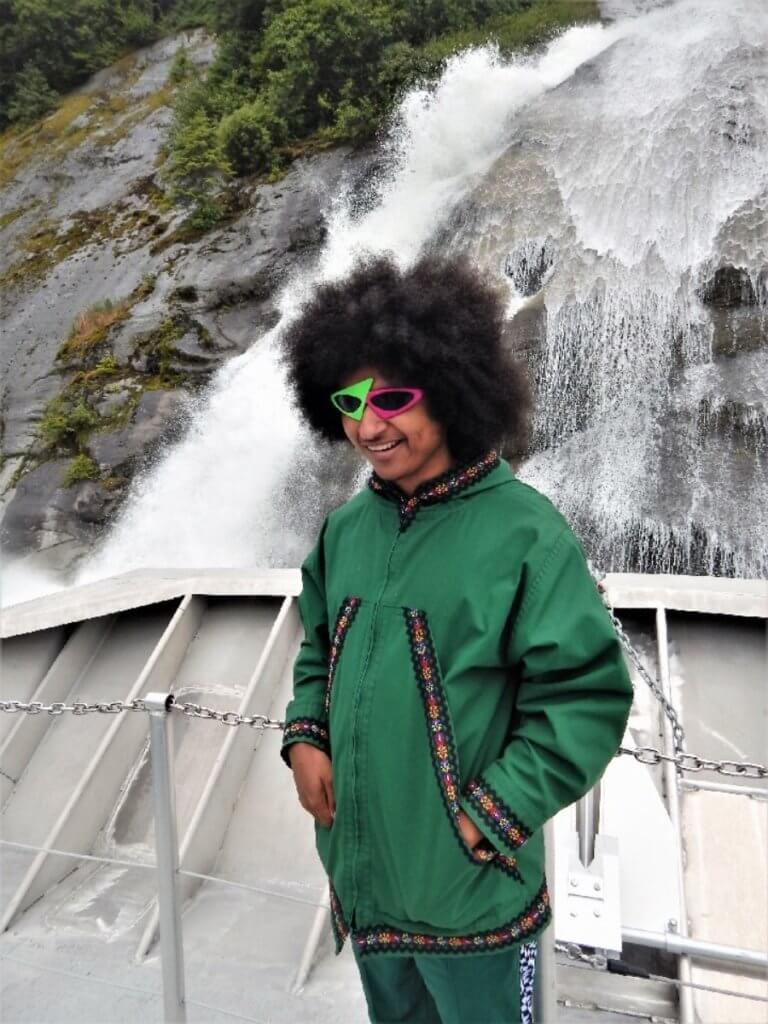
Arias “Air Jazz” Hoyle (Juneau, AK) — Indigenous Residency Series: North Star
Co-commissioner: Bunnell Street Arts Center (Homer, AK)
North Star envisions a bright future for Indigenous Alaskans. The North’s bright stellar light shines above the North Pole and reflects on Kageekmak, the bay at Tuggeht in Homer, Alaska. Tlingit hip-hop recording artist Arias Hoyle, aka Air Jazz, will create a film capturing people gathering in potlatch, in costume amid the gorgeous landscape in collaboration with Indigenous artists from tribes near Homer. The artists will cross the water by boat to visit Nanwalek and include community singers and dancers in the project.
Development Funds will support travel, filming, recording, and mixing, as well as an artist per diem and ceremonial gifts and receptions for Indigenous tribes in the Homer area.
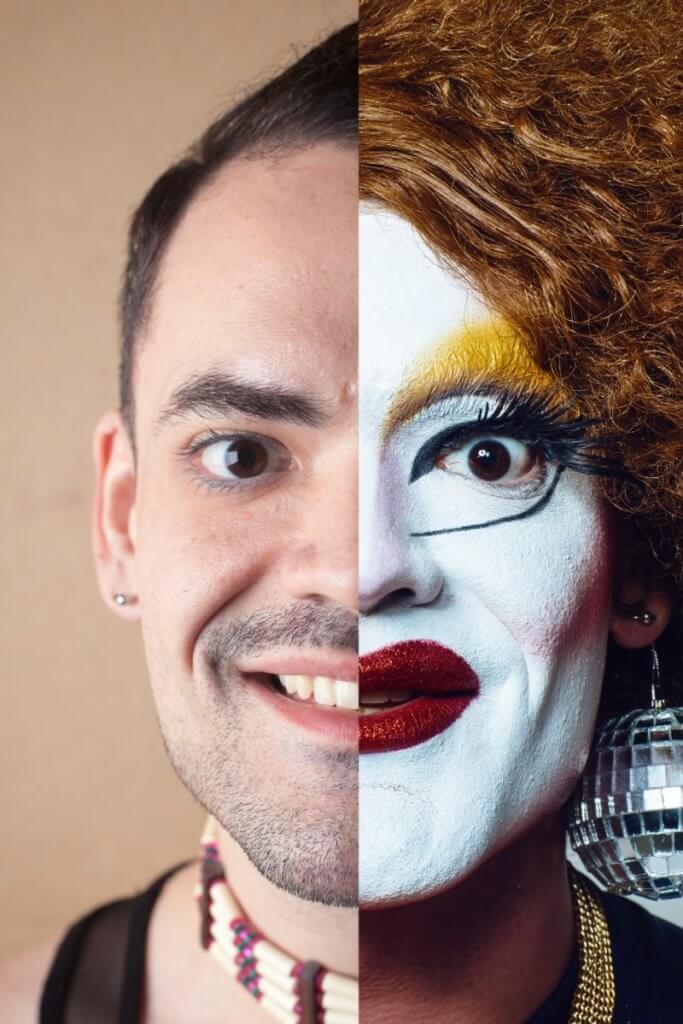
Anthony Hudson / Carla Rossi (Portland, OR) — Indigenous Residency Series: Clown Down 2: Clown Out of Water
Co-commissioner: Portland Institute for Contemporary Art (PICA; Portland, OR)
Anthony Hudson (Confederated Tribes of Grand Ronde) will develop Clown Down 2: Clown Out of Water, a sequel to the recent solo piece Clown Down: Failed to Mount. Anthony’s drag clown character Carla Rossi finds herself trapped on a rock in the ocean while the water level rises due to melting ice caps in a work that engages climate disaster and how to navigate an increasingly distressed planet.
Funds will support a residency at PICA that will allow Anthony to develop writing, motion graphics, scenography, and workshop activities, and to explore possibilities for virtual and outdoor or distanced iterations of the work. Collaborator David Eckard will develop set elements for the project, including a kinetic wave sculpture to represent the rising water levels, and Anthony will create puppets to be used the performance and work with a puppeteer, performer, and videographer to create a teaser video.
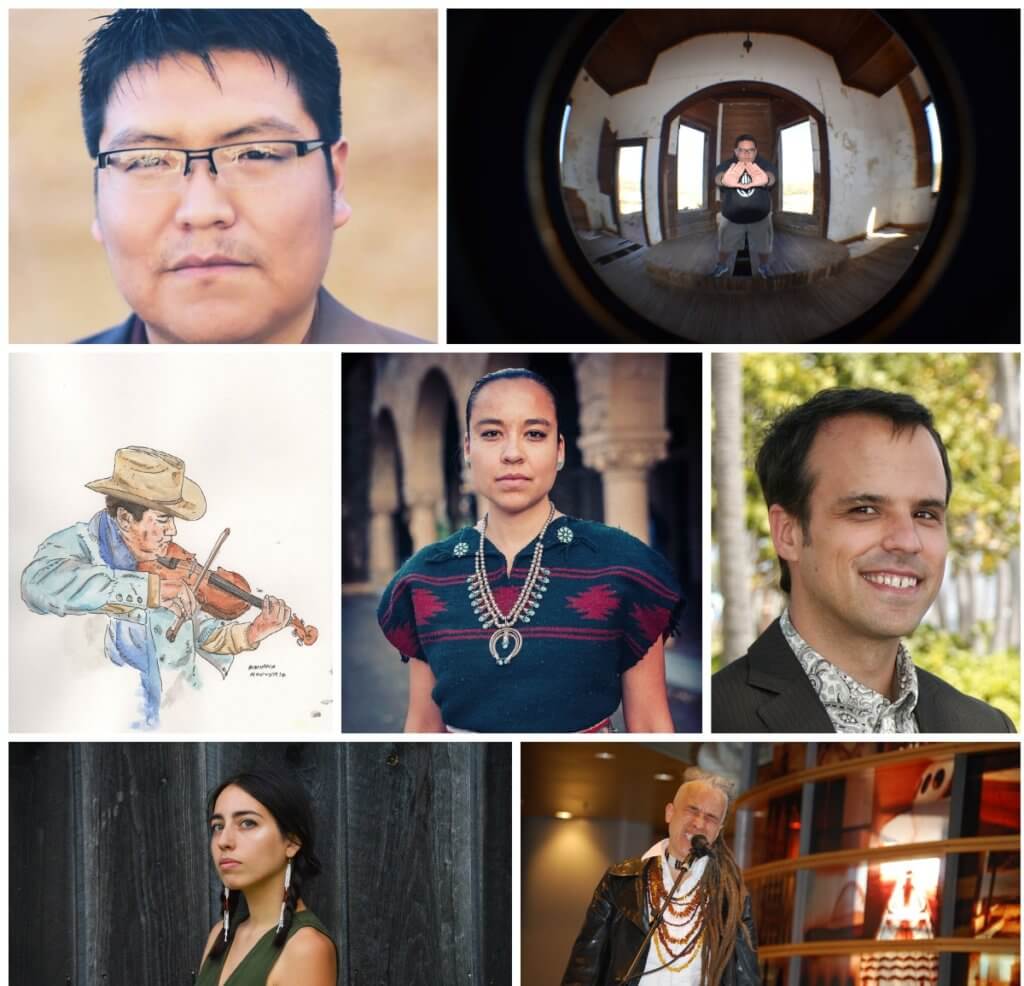
Indigenous Performance Productions (Olympia, WA) — Welcome to Indian Country
Co-commissioner: All My Relations Arts at Native American Community Development Institute (Minneapolis, MN)
Welcome to Indian Country is an evening-length performance that offers seven songs and seven stories celebrating Native peoples and culture through original music, historic music, and spoken word/storytelling. The storytelling and music will both exemplify the vibrant life of modern Native people and honor the artists’ ancestors, celebrating the resilience of Indigenous peoples and the Native musicians who left an indelible mark on the world and the many artforms that we call American music.
Funds will allow the artists to continue a development process that incorporates creative meetings with the performers and producer/director, smaller work meetings to transcribe and adapt instrumentation, and “whole community” in dialogue with presenter partners around how to plan the coming engagements for the benefit of the Native and non-Native communities. The all-Native ensemble has intentionally established a long development process to ensure time to consult with elders and culture bearers, and to get permission to tell the stories they will tell.
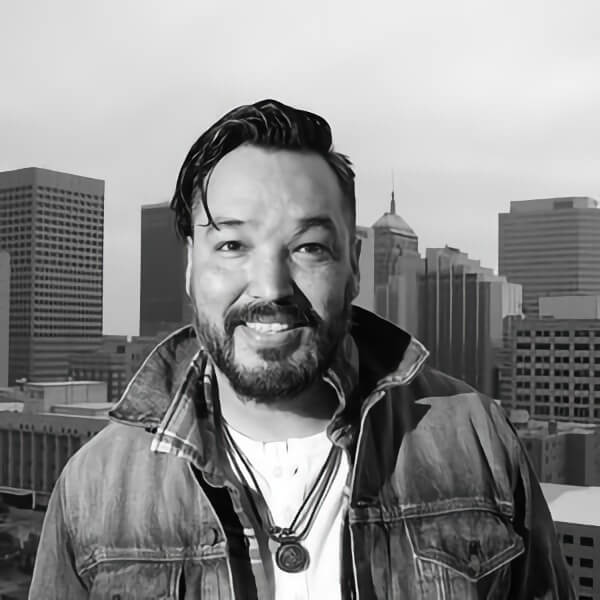
Steven Paul Judd (Oklahoma City, OK) — Indigenous Residency Series: Art of Dance (working title)
Co-commissioner: N M Bodecker Foundation (Portland, OR)
Steven Paul Judd (Kiowa-Choctaw) is creating a series of large paintings that capture the physical movements of Native dancers engaged in traditional ceremonial and social dances, such as the Gourd Dance, Fancy Dance, and Hoop Dance, among others. Films that show the painting process as well as interviews with dancers in their regalia explaining the history and significance of each dance will be exhibited together with the paintings as a dynamic, multi-disciplinary archive of Native dance.
The Development Fund will support a trial-and-error phase centered on Steven’s own tribe, the Kiowa, and their traditional Gourd Dance, to determine the process and mechanics to create the paintings. Funds will purchase materials, provide stipends for dancers and drummers, and cover filming, editing, and visual effects costs for the first short film.
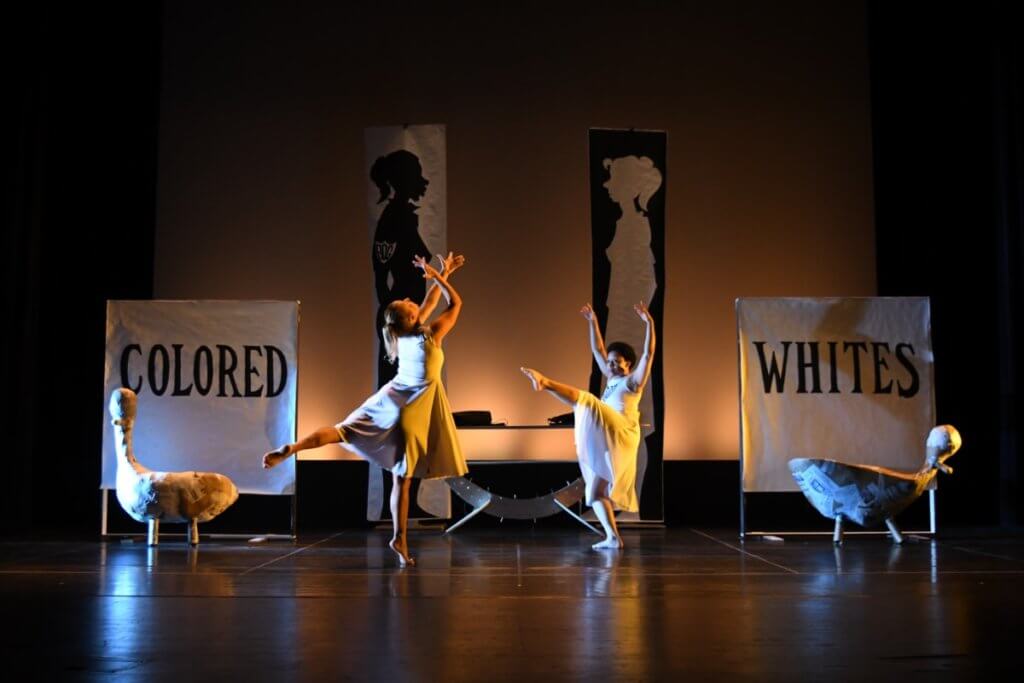
Leah Glenn Dance Theatre (Williamsburg, VA) — The Making of Nine
Co-commissioner: Carver Community Center (San Antonio, TX)
“The Making of Nine” is a series of virtual artist talks focusing on Leah Glenn Dance Theatre’s commemorative multimedia performance piece celebrating the Little Rock Nine. Nine seamlessly interweaves the vocabularies of dance, visual arts, poetry, and music in a narrative that reminds our nation of its collective history while causing us to reflect upon the repercussions of those damages upon our current education system.
This project will provide audiences with a bird’s-eye view of the choreographic and rehearsal processes as well as the building of the costumes, set pieces, sound score. The conversations will also explore the historical content that continues to inspire the work.
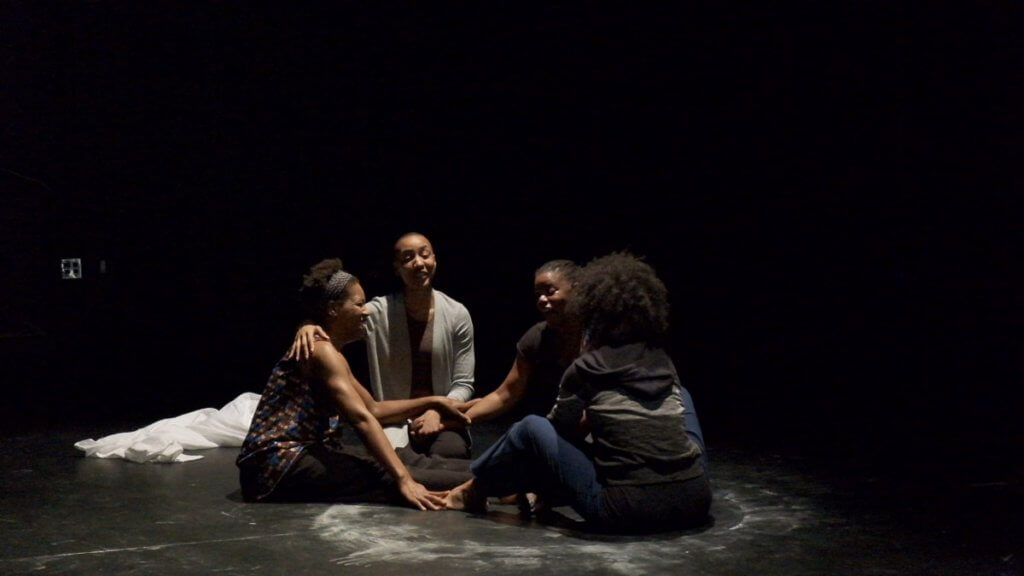
Leslie Parker Dance Project (St. Paul, MN) — Call to Remember
Co-commissioner: Pangea World Theater (St. Paul, MN)
Call to Remember is a shared offering of improvisation, experimentation, and conjuring exploring Black pedagogy, artistry, and activism in dance. Launching a multiyear collaboration, nationally renowned dancers Leslie Parker, Amara T. Smith, mayfield brooks, and Vie Boheme will create a work that prioritizes Blackness and explores remembrance as a means to cultivate community. Divination tools: imagine home is the first iteration of Call to Remember.
Funds will support a fall residency at Pangea World Theater, including for visual art installation and healing arts and movement workshops for the Twin Cities community.
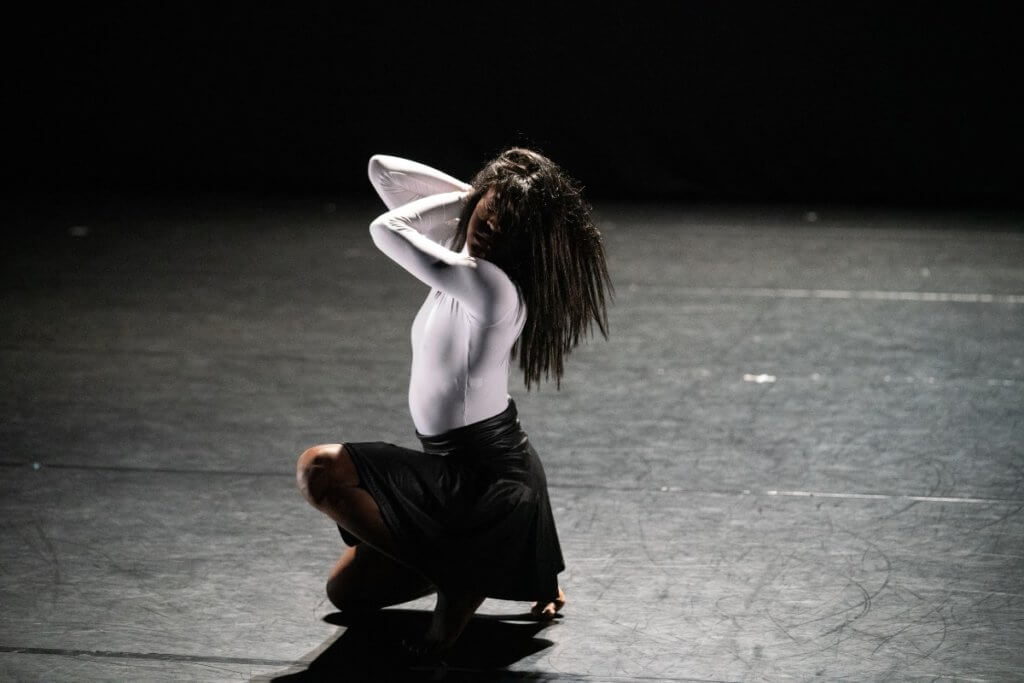
STAYCEE PEARL Dance Project & Soy Sos (Pittsburgh, PA) — CIRCLES
Co-commissioner: Kelly Strayhorn Theater (Pittsburgh, PA)
CIRCLES is an unapologetic, full-length dance work celebrating #BlackGirlMagic. Layering dance, visual arts, and a live original score, the work presents snapshots of popular culture through choreographer Staycee Pearl’s lens as a Black woman. With an ensemble of five dancers, CIRCLES is a loud, colorful, and daring path to self-reclamation. CIRCLES is amplified by an original soundtrack created by Herman “Soy Sos” Pearl in collaboration with a diverse roster of Black club artists.
Funds will support a two-week production residency at Kelly Strayhorn Theater and be used to engage a costume designer, set designer, sound designer, and lighting designer.

Mary Prescott (New York, NY) — Tida
Co-commissioner: Living Arts (Tulsa, OK)
Tida is an evening-length performance about intergenerational cultural identity through a Thai American woman’s maternal lineage. Integrating music, movement, and word, Prescott investigates her mother’s undocumented Thai ancestry and her experience as a Southeast Asian immigrant raising biracial and bicultural children in America and the resulting impact.
The Development Fund will support the purchase of high-quality audiovisual equipment, electronic music equipment, and related software, as well as training and an artist fee to pay the artist for her time in learning the new equipment and software. Beyond being used to develop integral project content, these skills and equipment will open new pathways for the artist’s scope and exploration, creating a lasting impact on her overall arts practice.
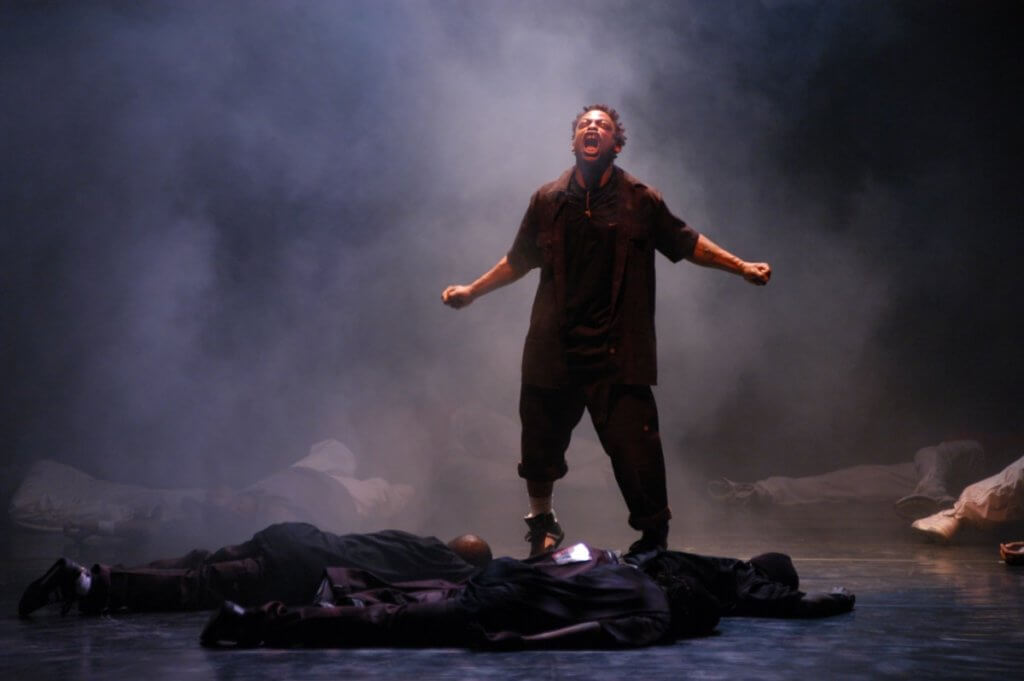
Rennie Harris Puremovement (Sharon Hill, PA) — Rennie Harris Puremovement 30th Anniversary Tour
Rennie Harris Puremovement (RHPM)’s 30th Anniversary Tour project seeks to connect with communities nationally through engaging, meaningful, relevant, and impactful performance art experiences and critical post-performance dialogue. As part of a triptych of the Black experience in America, RHPM will create two new works for the tour—Losing My Religion and American Street Dancer—and re(imagined)mount Harris’s legendary Rome & Jewels with its original cast.
The Development Fund will support additional music production, rehearsals, partnerships, script development, and dramaturg costs, allowing Harris to work with visionaries and collaborators who understand his aesthetic to fully develop the environments he seeks to create through the movement vocabulary’s conversation with visual and sound elements.
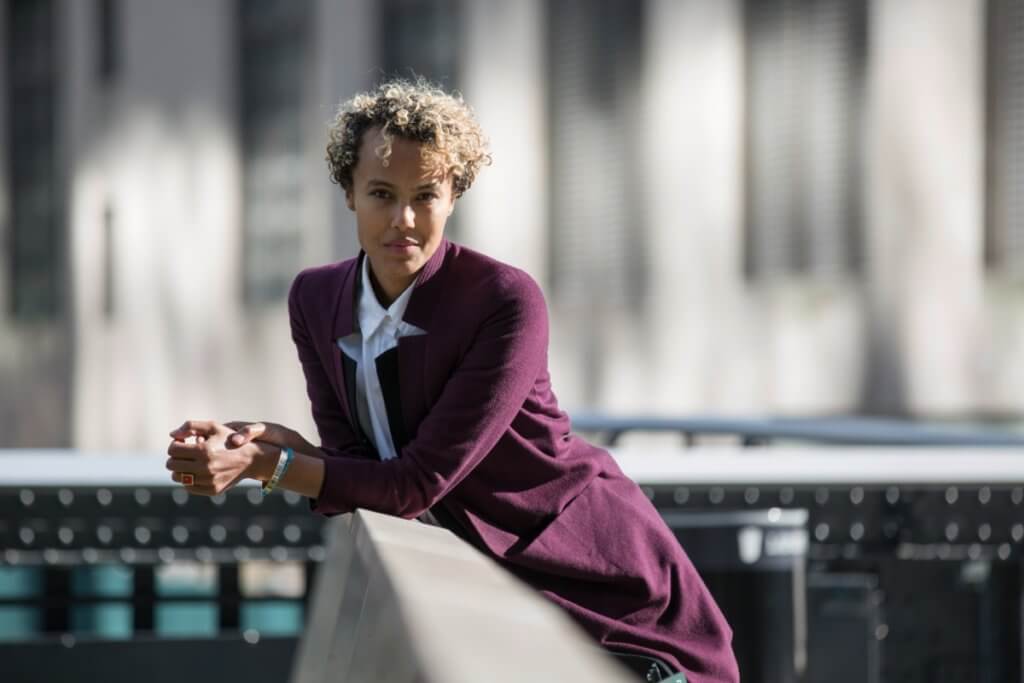
Kaneza Schaal (Brooklyn, NY) — KLII
Co-commissioner: Walker Art Center (Minneapolis, MN)
Based on Mark Twain’s 1905 King Leopold’s Soliloquy, KLII considers the residue of colonialism in our everyday lives. Funds will support a production residency and creative exchange with audiences in advance of the work’s premiere at the Walker Art Center. Building on Schaal’s work with Minneapolis juvenile detention centers and high schools serving immigrants and asylum seekers, the initiatives cultivate an audience representative of the local public.
Creative exchanges with audiences will use KLII as a platform to address movements of solidarity between formerly colonized and formerly enslaved peoples, which shape our understandings of self and nation. as well as a technical residency for the light, sound, and Augmented Reality technologies utilized in the piece.
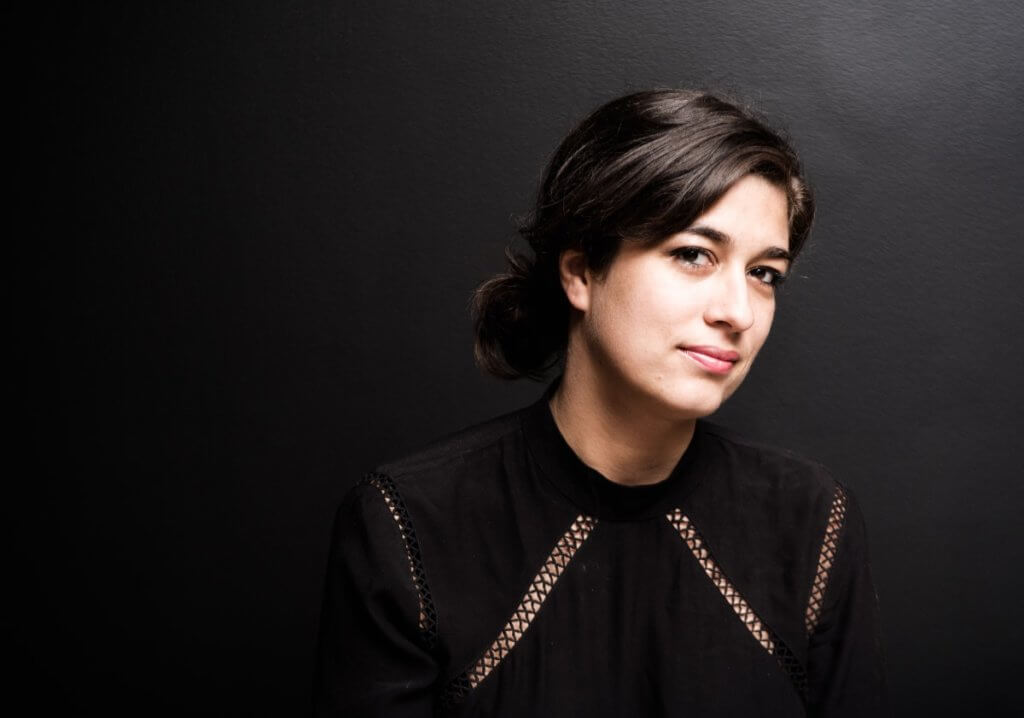
Marike Splint (Los Angeles, CA) — On the Other Side (2.0)
ON THE OTHER SIDE is a documentary performance about the real and imagined borders that delineate our lives. Splint will use this grant to transition the project from a work for the stage to a virtual work, allowing the work to shift to an international cast and incorporate performers who contribute to the work from their own experience with borders.
Funds will support a new casting process, as well as identifying and relationship-building with co-commissioners, presenters, and community partners and the set-up of a networking system to enable intercontinental rehearsal and performance. This will allow for an iteration of the work with performers who are geographically diverse and bring the global approach that this topic calls for.
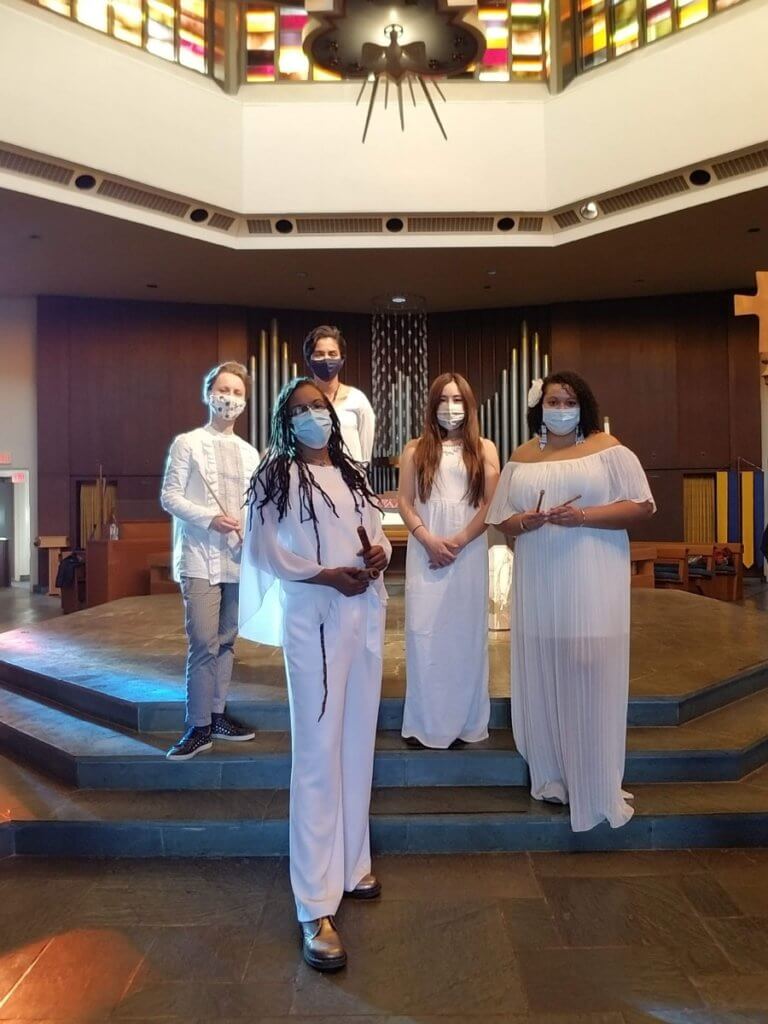
Zili Misik (Dorchester, MA) — Project Misik: Au Kare
Co-commissioner: Living Arts (Tulsa, OK)
Project Misik: Au Kare offers interactive community-based workshops and performances based on Zili music, reconnecting roots music of the African diaspora, including jazz, Haitian roots, highlife, reggae, samba, son, spirituals and neo-soul. Zili retraces routes of forced exile and cultural resistance, infusing original creations and traditional folksongs with self-reflective, positive lyrics that glide from English to Kreyòl to Kriolu to Spanish, spinning tales of lives lived and ones yet to be. Connecting the historical legacies of Black freedom narratives in Boston’s Beacon Hill and Tulsa’s Greenwood District, Zili’s musical conversations will link contemporary struggles for recognition of and action toward our shared humanity.
Zili Misik will use Development Funds to work with a filmmaker and a dancer to create short videos to accompany their musical compositions. These video projections will include choreography interpreting two songs, as well as video that personifies those who created thriving Black communities in 1920s Tulsa and 1850s Boston.